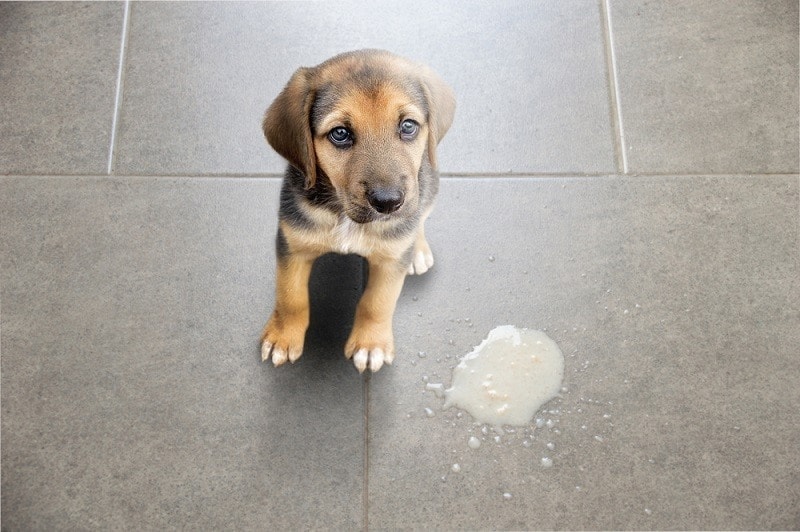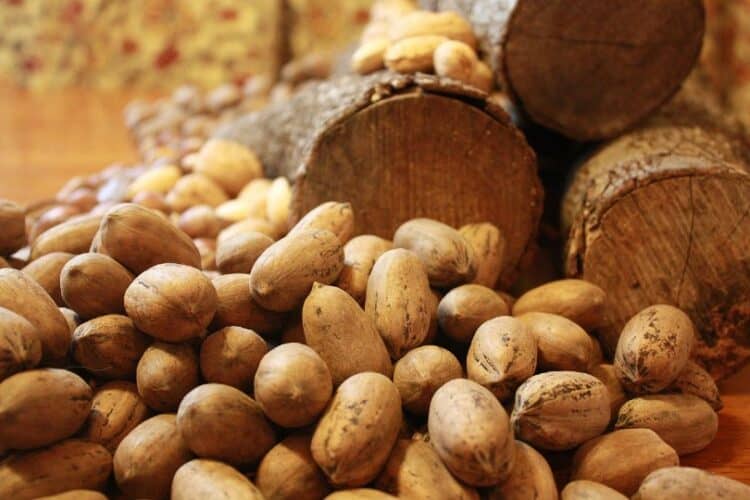No, pecans are not good for dogs. While eating one or two is unlikely to hurt them, eating more than a couple of pecans can have side effects. If your dog has eaten multiple pecans, call your veterinarian right away.
While you may enjoy pecans as a tasty and healthy snack, these nuts have a different impact on dogs than they do on humans. We’ll walk through the reasons why your dog shouldn’t eat pecans and what to do if it does.
Why Are Pecans Bad for Dogs?
Like most nuts, pecans are high in calories and fat. High-calorie, high-fat foods should always be considered a treat to give your dog in moderation. The calories of all your dog’s combined treats should not exceed 10% of its daily calories.
If your dog is prone to gaining weight, your dog should avoid pecans and other nuts as a treat because of their caloric and fat content. Fat is an essential part of a balanced diet for dogs, offering many health benefits such as fighting inflammation and supporting cartilage, but like anything, it’s possible to overdo it.
Additionally, foods with high-fat content can cause gastrointestinal discomfort in dogs that have sensitive tummies or in those prone to pancreatitis. Pancreatitis occurs when the pancreas becomes inflamed; it requires a visit to the vet’s office for treatment. The symptoms of pancreatitis include:
- Reduced appetite or none at all
- Vomiting
- Lethargy
- Diarrhea
If your dog shows these symptoms after consuming any nuts, call your vet immediately.
Pecans have another quality that makes them far more dangerous to dogs. They contain multiple toxins that can have minor effects on humans but potentially deadly consequences for dogs. The primary toxin in pecans is called juglone, which limits the growth of the pecan tree. Pecans are alos susceptible to mold, which contains its own set of toxins.
Many nuts, including pecans, may be manufactured with coatings that are flavorful for human snackers but potentially harmful to canine ones. These include ingredients like salt and pepper, spices, and sugar that can cause intestinal discomfort. A high amount of salt can cause high blood pressure or urinary stones in your pup; it can also be dangerous for dogs with kidney or heart disease.

What Happens If Your Dog Eats a Pecan?
If your dog eats only one or two pecans, it’s likely to have little to no side effects. If it eats a significant number of them or eats some that have mold, you might notice these symptoms:
- Vomiting
- High temperature
- Tremors
- Muscle weakness
- Seizures or other neurological issues
If you know your dog has eaten pecans and is having one or more of these symptoms, call your vet immediately. Your pet may require an infusion of medication or fluids if it has been vomiting profusely or having significant diarrhea.
Some nuts are safe for canines to eat. It’s common for pet owners to use peanut butter to feed their dog a pill, which is fine. However, nuts still contain high amounts of fat and calories, so be mindful of how much you are feeding him on a regular basis.
The Bottom Line
Pecans are not safe for dogs to eat in large amounts because of their fat content, calories, the toxins they contain, and their potential to carry dangerous mold. If you’re looking for a treat for your dog, check the pet aisle at the store for safe ideas.
When you’re enjoying pecans yourself, make sure your pup can’t get to them and clean them up quickly if they fall on the floor. Keeping your furry friend away from pecans will keep them healthy and safe for the long term, which is what you both want!
Featured Image Credit: Pixabay














